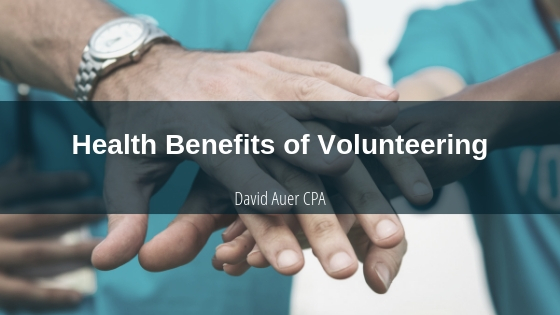Volunteering isn’t just another thing to do to fill your time. Not only is it a great way to give back to your community, but volunteering also offers significant health benefits. Sharing your time is a great way to help out, and it leads to a happy and healthy life!id A
Positivity
Volunteering makes people feel happy and encourages a positive attitude. The action gives people a sense of accomplishment and satisfaction. Volunteering also increases positivity on a chemical level. Studies show that when people help others, their bodies release dopamine in their brains. This causes people feel happier.
Decreased Risk of Depression
Thanks to the link between positivity and volunteering, those who volunteer their time are at a lower risk for depression. This is especially true for individuals who are 65 and older. Volunteering provides people with significant personal interaction and creates a support system based on common interests. These factors help reduce the risk of depression.
Reduced Levels of Stress
Volunteering also helps reduce stress and risk of disease. Volunteering helps people build their social network and allows people to spend time serving others. This fosters a sense of meaning and appreciation. It also helps boost self-esteem. These qualities help lower stress, and volunteers know that they have a strong community to help them out if they need.
Physical and Mental Activity
Depending on where a person volunteers, they may also have increased levels of physical activity. Volunteering requires movement, even if it’s just getting to the place where one volunteers. They may need to perform other activities such as moving boxes or handing out leaflets. Volunteers generally have better health than people who don’t volunteer.
Volunteering is also mentally stimulating! Those who volunteer are at less of a risk for memory loss. Volunteering also slows the progression of diseases such as Alzheimer’s and other types of dementia.
Longer Life
With all these health benefits, it should come as no surprise that those who volunteer lead longer lives than those who do not! According to an analysis from the Longitudinal Study of Aging, volunteering leads to longevity. The study found that people who volunteer have lower mortality rates than those who do not. Volunteers also have less of a risk of heart disease.
Volunteering is a wonderful act. It doesn’t only benefit those you’re helping, but also has great health benefits for you!

